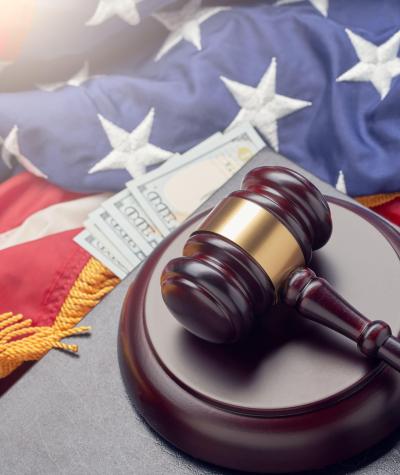Following recent ballot measure victories to end secret spending in state elections, state legislators and communities around the country have taken notice and are working to prevent wealthy special interests from using unlimited, secret money to rig the political system in their favor.
After the Supreme Court’s 2010 decision in Citizens United opened the door to unlimited corporate spending in elections, the amount of outside spending — that is, by groups other than candidates and parties — has skyrocketed. When the money funding this spending is routed through 501(c)(4) social welfare groups or 501(c)(6) trade associations, voters are left in the dark about where this money is really coming from thanks to out-of-date campaign finance laws.
But voters are taking a stand to prevent their voices from being drowned out by secret spending. In 2020, Alaska voters passed Ballot Measure 2, which, among other reforms, requires big outside spenders to identify the true sources of the money being spent on Alaska elections.
More recently, Arizona voters overwhelmingly passed Proposition 211, also known as the Voters’ Right to Know Act, in 2022. This landmark law, which was supported by over 72 percent of Arizona voters, requires the disclosure of the original sources of big money spent on Arizona elections and provides a model for others states to follow.
And some are doing just that. In Hawaii, legislators introduced a bill — SB 997 — that would have required big election spenders to disclose the original sources of the money they spend on elections. Although the bill did not advance this session, it followed on the heels of a similar bill passing the Hawaii Senate in 2021, illustrating the strong support for greater transparency in the Aloha State.
Similarly, in Illinois, HB 3804 would have enacted original source disclosure for big election spenders, while also adopting more robust rules to guard against illegal coordination between candidates and outside election spenders. The bill’s introduction provides a strong starting point for improving the state’s campaign laws.
Finally, LD 1590 in Maine is a pending bipartisan bill to require the disclosure of the original sources of big money spent to influence elections in that state. After some favorable action in a legislative committee this session, the bill will be carried over to a future session of the Maine legislature.
In addition to original source disclosure bills, there were other positive advancements in improving state campaign finance disclosure. For example, in Minnesota, legislators introduced HF 1689, a bill to establish a political ad archive for the state, a critical tool for improving transparency for digital political ads. And in Michigan, people from across the state gathered for a campaign finance reform lobby day this spring, urging legislators to take action on critical money-in-politics issues.
From coast to coast, the message is clear: Voters have the right to know who is spending big money to influence their vote, and they are taking action to make that right a reality. Real transparency about who is spending big money on elections will mean more government accountability, less influence for wealthy special interests and less political corruption.
To learn more about reforms to stop secret spending in our elections, see our DemocracyU toolkit.

